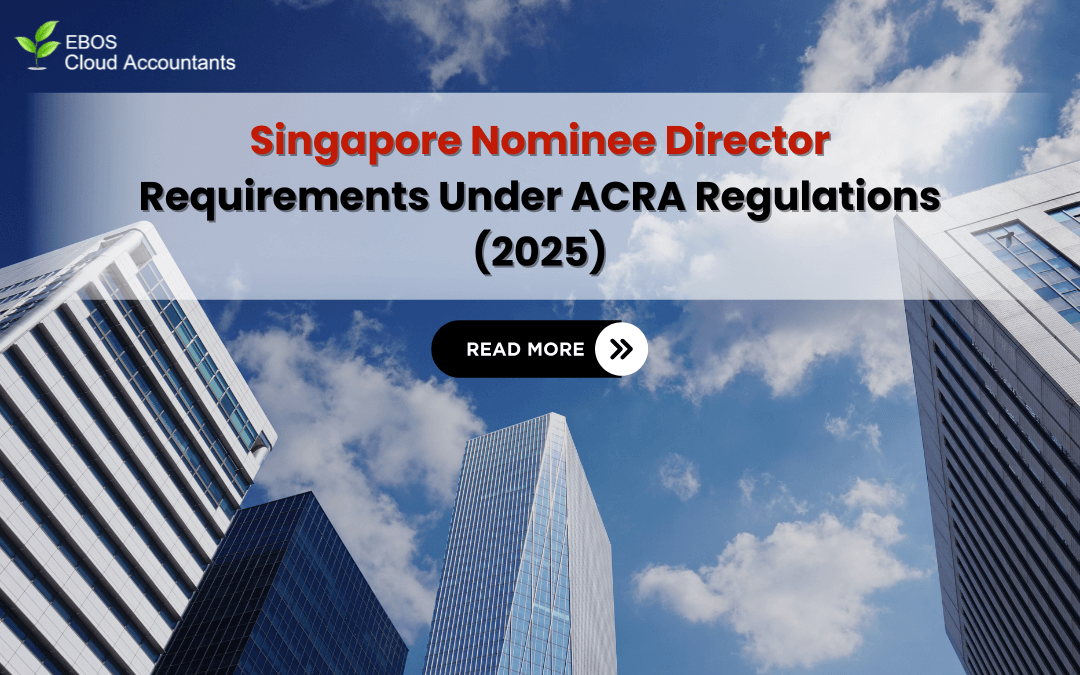In 2025, the Accounting and Corporate Regulatory Authority (ACRA) introduced key updates to nominee director regulations in Singapore. These changes aim to improve corporate transparency, prevent misuse of nominee arrangements, and align Singapore’s governance practices with international standards.
If you’re a business owner, corporate service provider, or foreign entrepreneur using or planning to appoint a nominee director, it’s critical to understand the latest legal obligations under the new framework.
Who Is a Nominee Director?
A nominee director is appointed to fulfill statutory requirements (such as having at least one locally resident director) but may not have actual decision-making power in the company. The real decision-making authority typically lies with the ultimate beneficial owner (UBO) or foreign shareholder.
This setup is common among foreign-owned companies looking to register a business in Singapore without a resident director.
Key ACRA Requirements for Nominee Directors (Effective 2025)
1. Mandatory Declaration of Nominee Status
Under the 2025 regulations, anyone acting as a nominee director must declare their nominee status and disclose:
-
The identity of the nominator (i.e., the person or entity instructing them),
-
The date of appointment and nature of the arrangement.
This information must be maintained in the company’s internal Register of Nominee Directors (ROND) and reported to ACRA’s Central Register.
2. Maintaining the ROND
All Singapore-incorporated companies (except for exempted entities) are now required to:
-
Maintain a Register of Nominee Directors (ROND) at their registered office or a prescribed location,
-
Ensure the ROND is updated within 7 days of any changes (e.g., new nominee appointments, changes to nominators),
-
Provide this information upon request to ACRA or law enforcement.
3. Reporting to ACRA’s Central Register
By 31 December 2025, companies must submit nominee director and nominee shareholder details to ACRA’s Central Register, even if they currently don’t have such appointments.
Moving forward, any new appointments or changes must be reported within 14 days.
4. Penalties for Non-Compliance
Failure to comply with the updated nominee director regulations may result in:
-
Fines of up to SGD 5,000 per breach,
-
Prosecution for providing false or misleading information,
-
Potential disqualification of directors in severe cases.
Why These Rules Matter
These changes are part of Singapore’s commitment to:
-
Strengthening corporate transparency,
-
Preventing misuse of shell companies for money laundering or tax evasion,
-
Complying with FATF (Financial Action Task Force) standards on beneficial ownership.
For legitimate businesses, this builds trust with clients, banks, and regulators.
What Should Businesses Do Now?
✅ Review Existing Nominee Arrangements
Ensure that your nominee directors have been properly documented and disclosed.
✅ Prepare the Registers
Maintain and regularly update your company’s ROND and RONS (Register of Nominee Shareholders).
✅ Submit Information to ACRA
Before the 31 December 2025 deadline, submit all required details to ACRA’s Central Register via BizFile+.
✅ Engage a Trusted Corporate Service Provider
If you’re using nominee services, ensure your provider understands and complies with these new rules.
Conclusion
Singapore’s 2025 nominee director regulations reflect a global push for transparency and accountability. While these updates introduce new administrative requirements, they also help strengthen Singapore’s reputation as a trusted business hub. Check out our website at https://ebos-sg.com/ to explore more articles and discover how our Cloud Accountant Services can support you on your business.
Stay compliant, stay informed—and if in doubt, consult a qualified corporate service provider or legal advisor.







